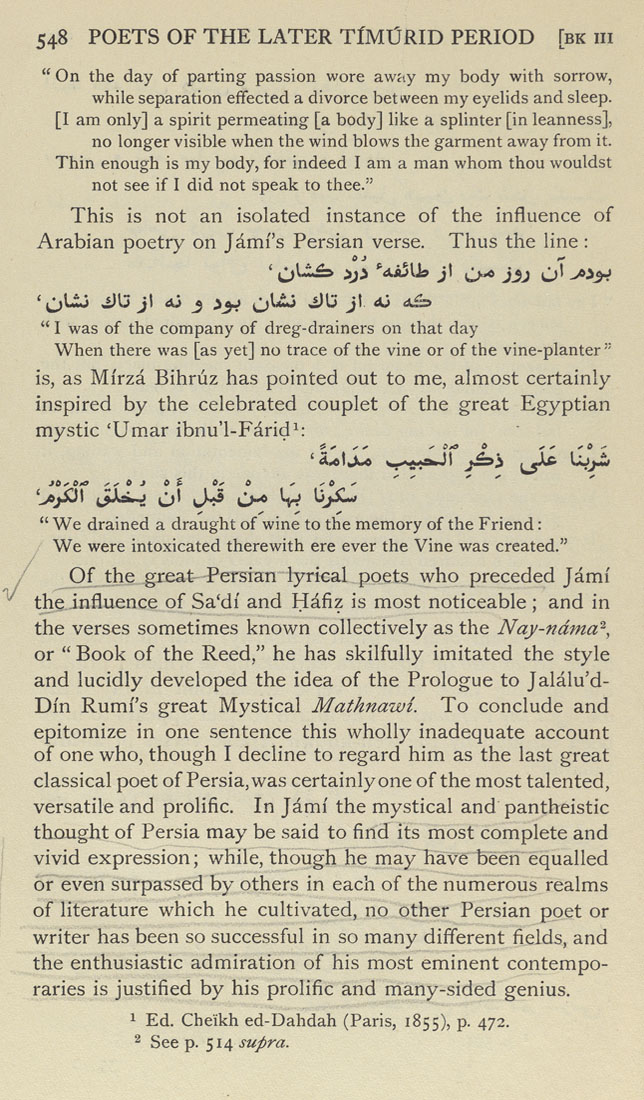548 POETS OF THE LATER TImURID PERIOD [bkiii
" On the day of parting passion wore away my body with sorrow,
while separation effected a divorce between my eyelids and sleep.
[I am only] a spirit permeating [a body] like a splinter [in leanness],
no longer visible when the wind blows the garment away from it.
Thin enough is my body, for indeed I am a man whom thou wouldst
not see if I did not speak to thee."
This is not an isolated instance of the influence of
Arabian poetry on Jami's Persian verse. Thus the line :
' jjli^ ^j^ *'AA5li» Jt ^J«« j^j jjt ^33->
' O^^ ^U Jt <u 3 ^^ O^^ *^^ J' *^ **^
" I was of the company of dreg-drainers on that day
When there was [as yet] no trace of the vine or of the vine-planter "
is, as Mirza Bihruz has pointed out to me, almost certainly
inspired by the celebrated couplet of the great Egyptian
mystic 'Umar ibnu'l-Farid^:
^ ^ • <. ^ Ota 0 ^ ^ ^ d .-
'4^tjw« ww^SfcJt j^D^ jJU \jJj^
• •■ • X
" We drained a draught of wine to the memory of the Friend:
We were intoxicated therewith ere ever the Vine was created."
Of the great Persian lyrical poets who preceded Jami
the influence of Sa'di and Hafiz is most noticeable ; and in
the verses sometimes known collectively as the Nay-ndma^,
or " Book of the Reed," he has .skilfully imitated the style
and lucidly developed the idea of the Prologue to Jalalu'd-
Dm Rumi's great Mystical Mathnawi. To conclude and
epitomize in one sentence this wholly inadequate account
of one who, though I decline to regard him as the last great
classical poet of Persia, was certainly one of the most talented,
versatile and prolific. In Jami the mystical and pantheistic
thought of Persia may be said to find its most complete and
vivid expression; while, though he may have been equalled
or even surpassed by others in each of the numerous realms
of literature which he cultivated, no other Persian poet or
writer has been so successful in so many different fields, and
the enthusiastic admiration of his most eminent contempo¬
raries is justified by his prolific and many-sided genius.
1 Ed. Cheikh ed-Dahdah (Paris, 1855), p. 472.
^ See p. 514 supra.
|








